Colocasia gigantea, often referred to as the Thailand Giant or the Giant Elephant Ear, is a breathtaking plant that captivates the senses and transforms landscapes into tropical havens. This species, belonging to the Araceae family, exemplifies nature’s ability to create awe-inspiring wonders. With its towering stature and enormous leaves, the Colocasia gigantea not only serves practical gardening purposes but also embodies an aesthetic that transports onlookers to a realm of botanical majesty.
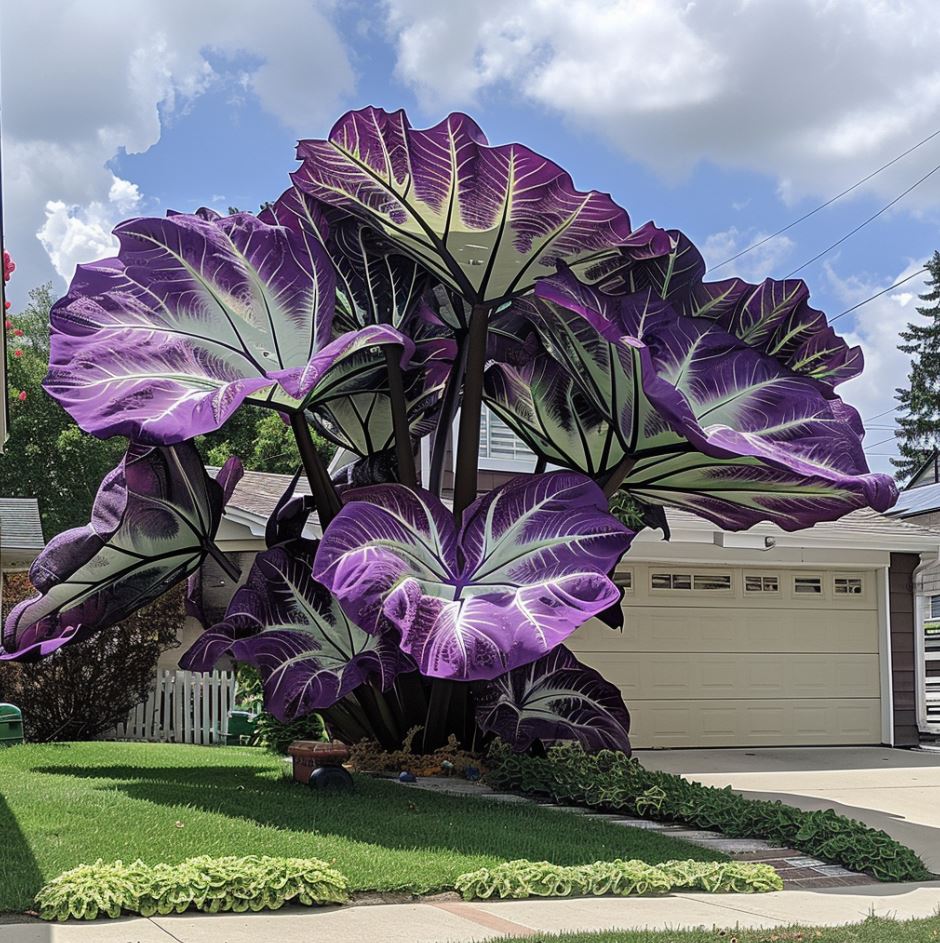
The Botanical Majesty
Colocasia gigantea is renowned for its impressive size, reaching heights of up to 10 feet. Imagine walking through a lush garden where the air is filled with humidity, and these colossal plants rise like natural sculptures, each leaf resembling an umbrella, providing shady havens beneath their grandeur. Their sheer size demands attention and adds a bold statement, serving as engaging specimens in garden designs or cozy backyard hideaways.
The Giant’s Towering Presence
Standing tall and proud, the Colocasia gigantea commands attention the moment it comes into view. Its massive leaves can span several feet in width, creating a canopy-like effect that casts a soothing shade over the surrounding area. Imagine the feeling of walking beneath these giants, the dappled light filtering through the leaves, creating a serene and meditative ambiance.
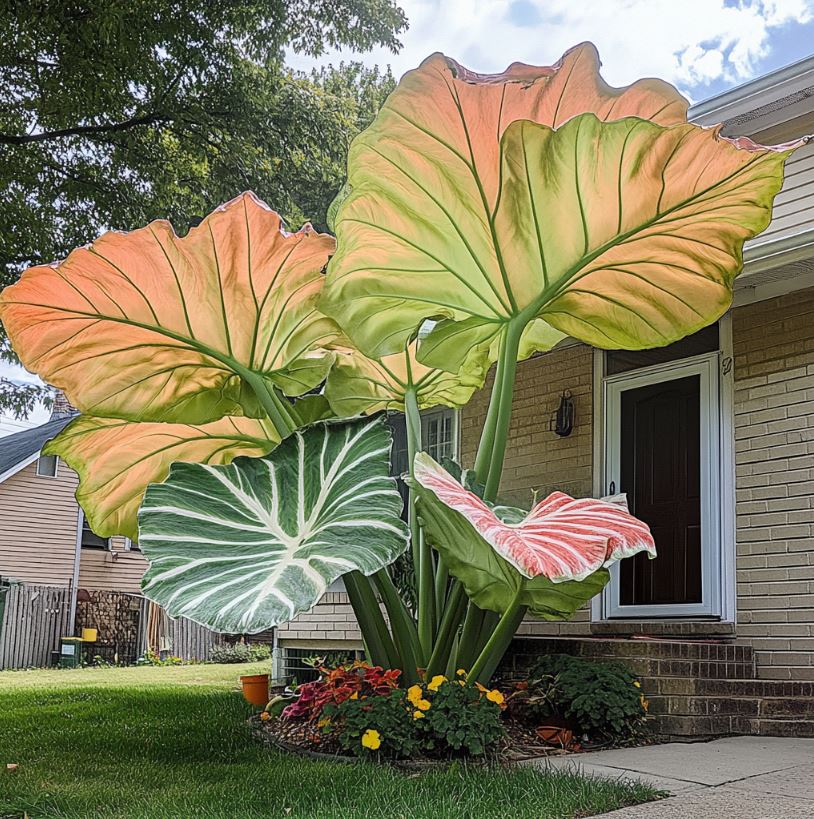
Architectural Elegance
The architectural elegance of the Colocasia gigantea is captivating. Each leaf is meticulously crafted, with a distinct shape and texture that harmonizes with the plant’s overall stature. The leaf’s broad, heart-shaped form, coupled with its thick, veined structure, gives the impression of a natural umbrella, a testament to nature’s engineering prowess.
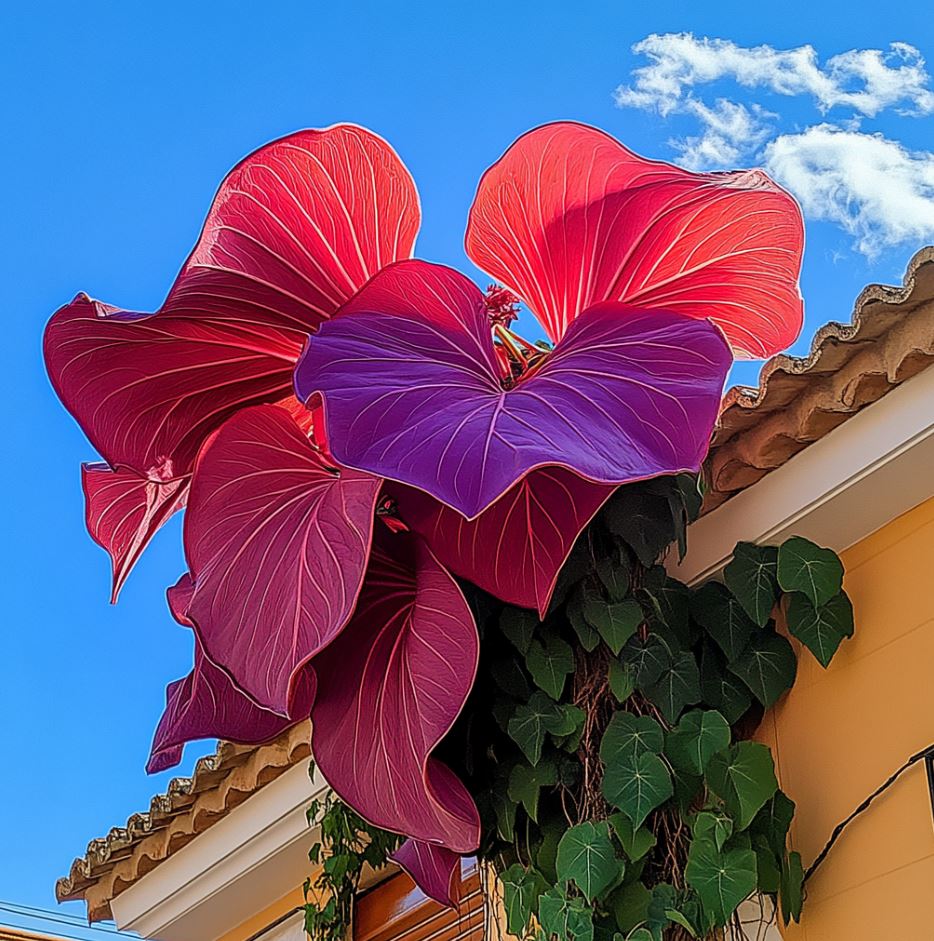
A Natural Focal Point
In garden design, the Colocasia gigantea serves as a natural focal point, drawing the eye and captivating the viewer. Its bold presence commands attention, and its sheer size makes it an ideal specimen for creating a sense of scale and drama within a landscape. Imagine a lush, tropical-themed garden where these giants stand as sentinels, guiding the visitor through a verdant oasis.
Cultivating a Giant
As magnificent as the Colocasia gigantea is, cultivating this plant requires consideration of its specific needs. Understanding the plant’s growth requirements and providing the appropriate care can be a rewarding experience, inviting a deeper connection with the natural world.
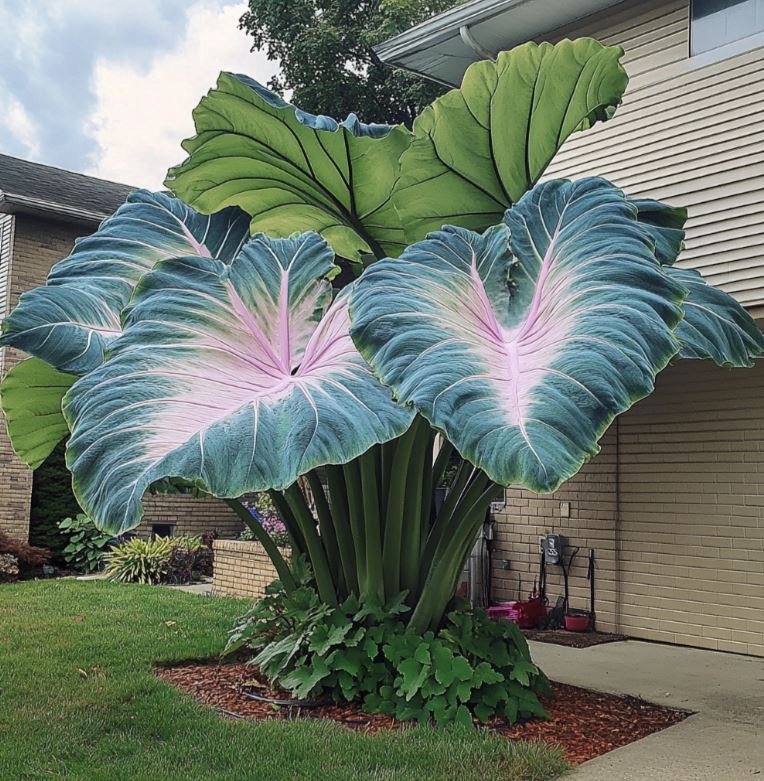
Soil Preparation
The Thailand Giant thrives in well-drained, fertile soil enriched with organic matter. Amending the soil with compost or other organic materials can significantly enhance its growth potential, providing the necessary nutrients and improving drainage.
Sunlight Preferences
Colocasia gigantea prefers full sun to partial shade, a testament to its tropical origins. In its native environment, these giants thrive in the warm, moist conditions that mimic their natural habitat. Providing the appropriate sunlight exposure is crucial for the plant’s health and vigor.
Patience and Commitment
Cultivating a Colocasia gigantea requires patience and a genuine commitment to understanding nature’s rhythm. Imagine the anticipation of planting the seeds and nurturing each emerging shoot, developing an emotional connection to the plant’s growth and transformation.
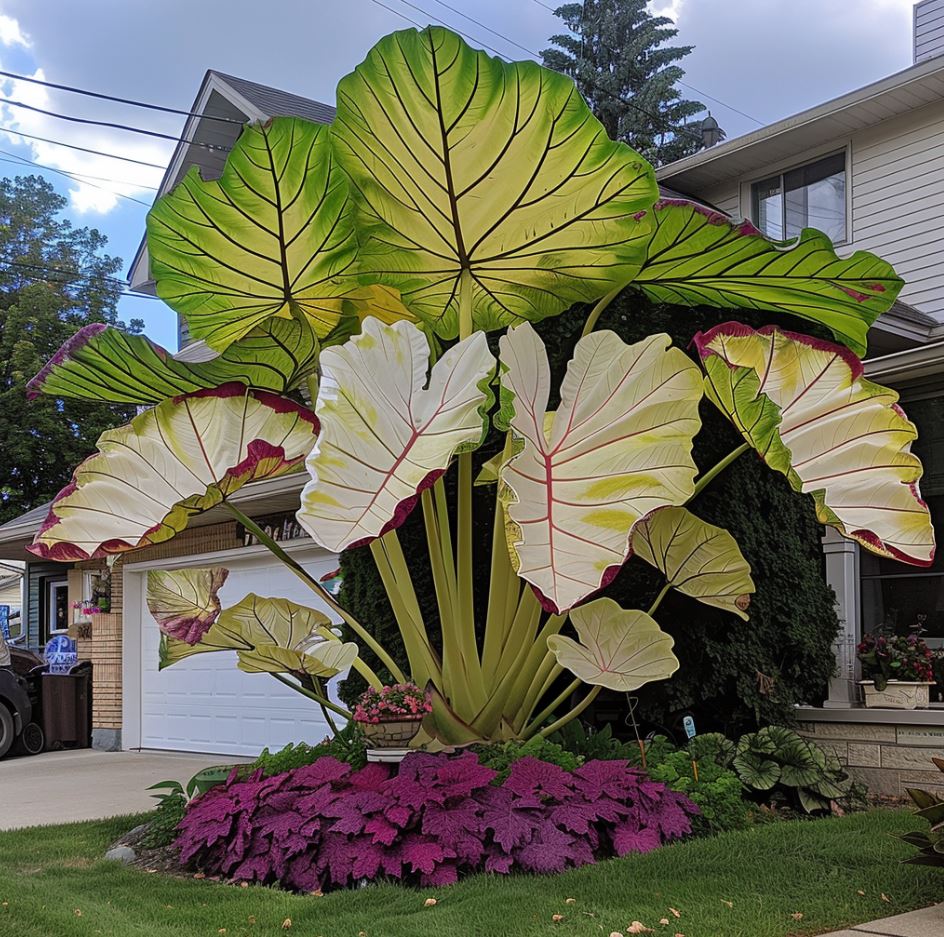
Overcoming Challenges
Growing a Colocasia gigantea is not without its challenges. Maintaining the proper soil moisture, protecting the plant from pests and diseases, and managing its towering size can all require a delicate balance of care and attention. However, overcoming these obstacles can be a rewarding experience, fostering a deeper appreciation for the plant’s resilience and the interconnectedness of the natural world.
Cultural Significance
The significance of Colocasia gigantea extends beyond the realm of horticulture, as it is deeply embedded in the cultural practices of various regions, particularly in Southeast Asia.
Culinary Traditions
In many cultures, taro plants, including Colocasia species, are integral to culinary traditions. The roots of these plants are not only nutritious but also carry stories of heritage and culture, showcasing the plant’s dual roles as both a visual attribute in gardens and a culinary staple in kitchens.
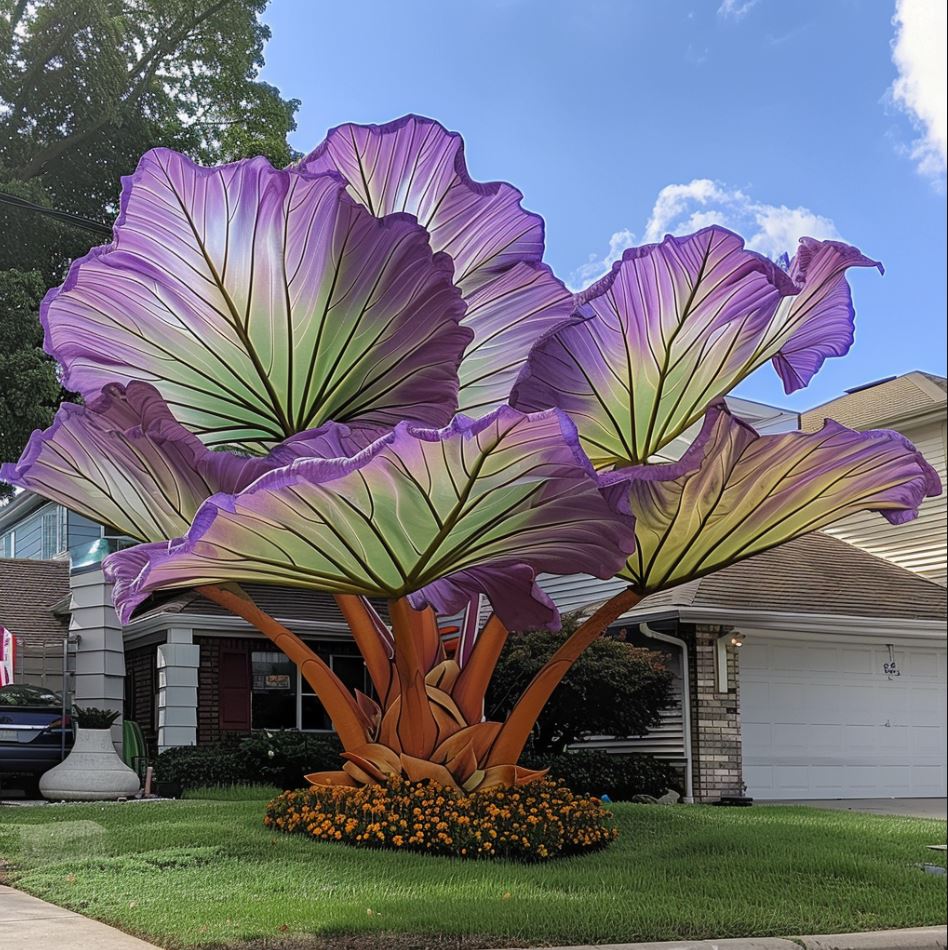
Nutritional Value
The edible roots of the Colocasia gigantea are highly nutritious, containing a rich array of vitamins, minerals, and carbohydrates. These roots have been a staple food in many traditional societies, contributing to the sustenance and well-being of local communities.
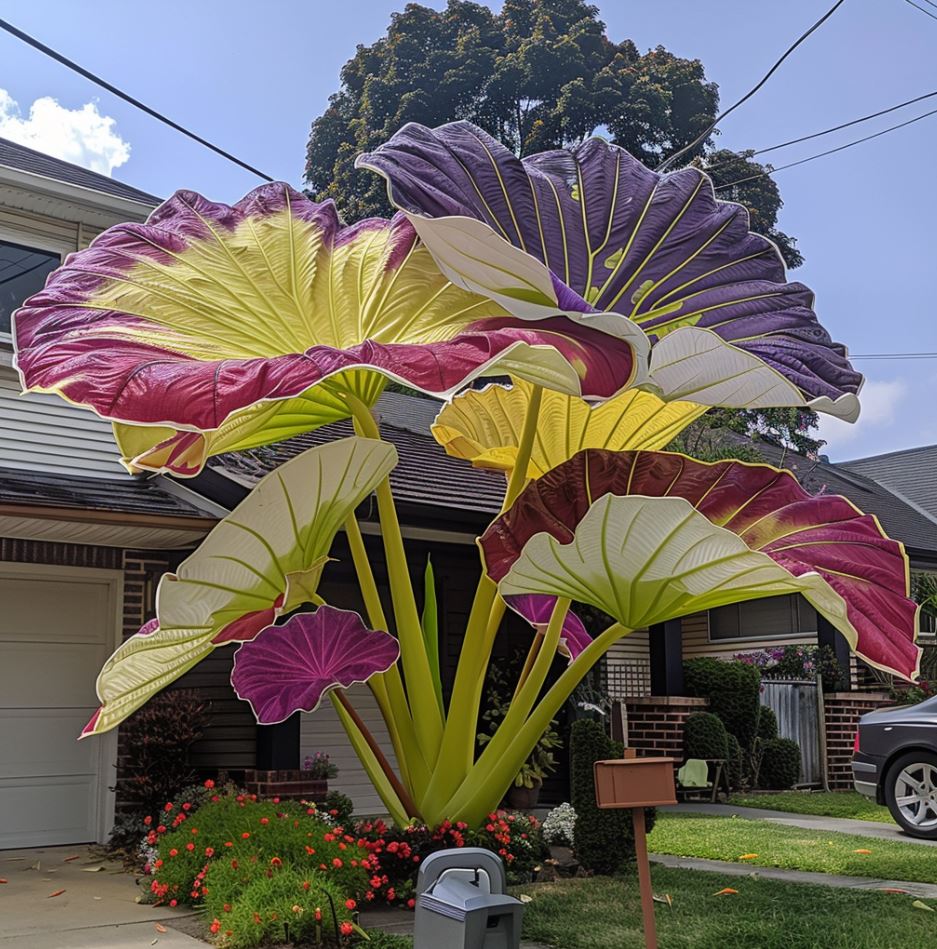
Symbolic Significance
Beyond their practical uses, Colocasia species often hold symbolic significance in various cultures. In some traditions, the plants are revered for their connection to the earth, fertility, and the cycle of life. This reverence for the Colocasia gigantea highlights its multifaceted role, transcending the boundaries of mere aesthetics or utility.
Intergenerational Ties
The cultivation and consumption of Colocasia gigantea can foster intergenerational ties, as the knowledge and practices surrounding these plants are often passed down through generations. This cultural continuity serves as a testament to the plant’s enduring significance and its ability to nourish both body and spirit.
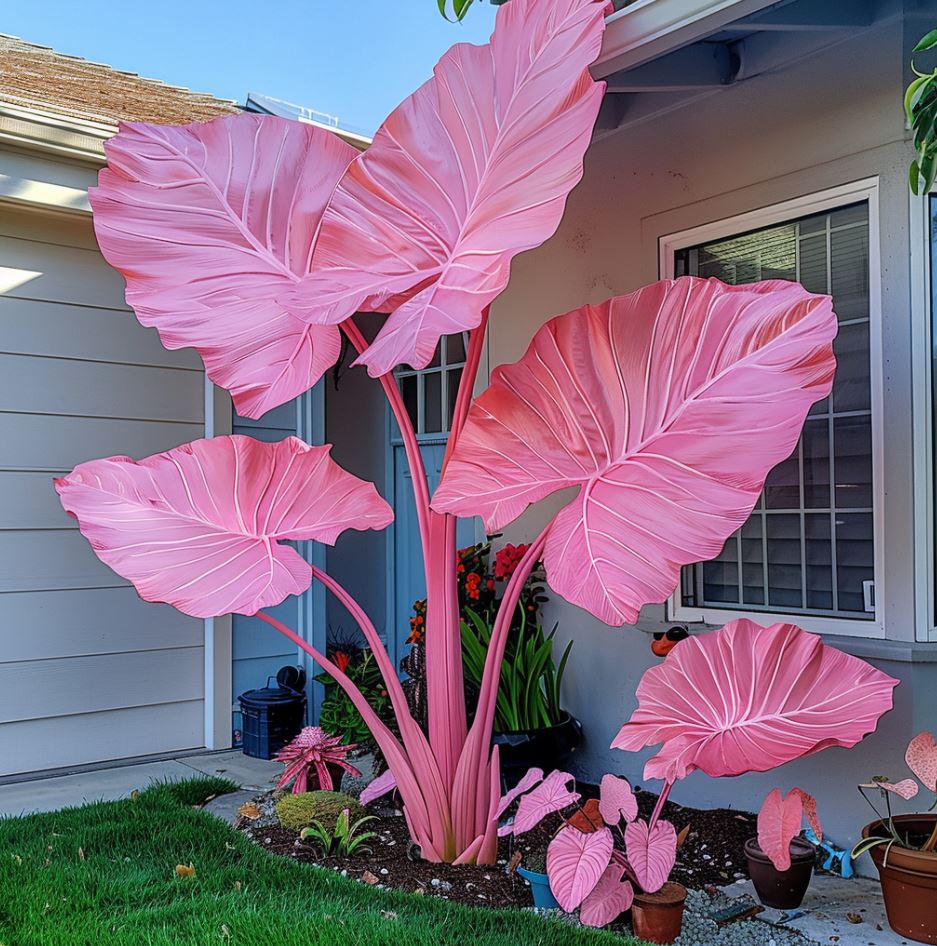
Environmental Considerations
Bringing the Colocasia gigantea into your garden or landscape implies a broader ecological impact that deserves thoughtful consideration. While the plant’s beauty and grandeur are undeniable, its introduction can potentially disrupt local ecosystems, raising questions about the balance between human desires and environmental preservation.
Invasive Potential
The Colocasia gigantea, being a non-native species in many regions, may possess the potential to become invasive, outcompeting local flora and disrupting the natural balance of the ecosystem. This juxtaposition between the plant’s aesthetic appeal and its ecological implications is a crucial factor to weigh when contemplating its integration into a garden or landscape.
Biodiversity Conservation
The desire to cultivate exotic plants like the Colocasia gigantea raises reflective questions about the importance of preserving native flora. Should our fascination with dramatic, non-native species outweigh the need to maintain the integrity of local ecosystems? This dilemma highlights the delicate balance between human appreciation for nature and the responsibility to protect biodiversity.
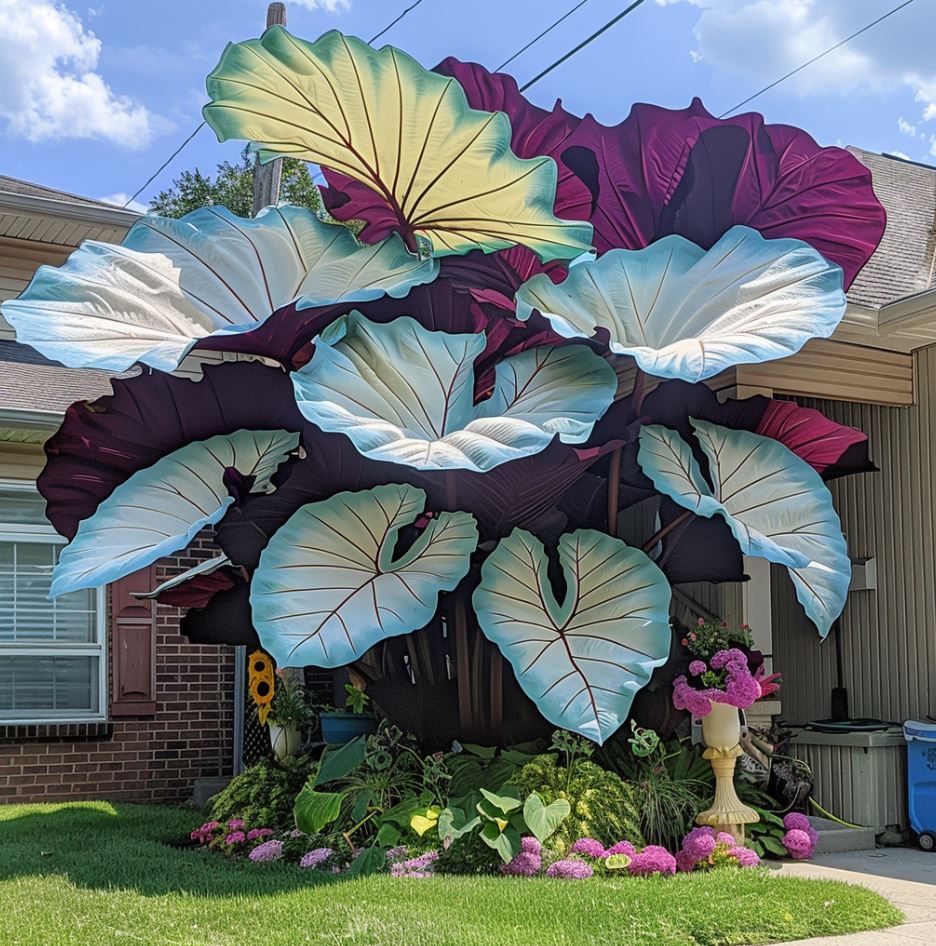
Sustainable Landscaping
As we look to the future, the integration of Colocasia gigantea into urban environments presents an intriguing opportunity. Imagine cities incorporating these giant foliage as living art installations, creating green walls or vertical gardens that reintroduce nature into concrete jungles. Such initiatives could contribute to sustainable landscaping practices, improving mental well-being and environmental health.
Ecological Implications
The introduction of Colocasia gigantea into a garden or landscape carries ecological implications that must be carefully considered. Understanding the plant’s potential impact on local ecosystems, its water and nutrient requirements, and its interaction with other flora and fauna is crucial in ensuring a balanced and sustainable approach to its cultivation.
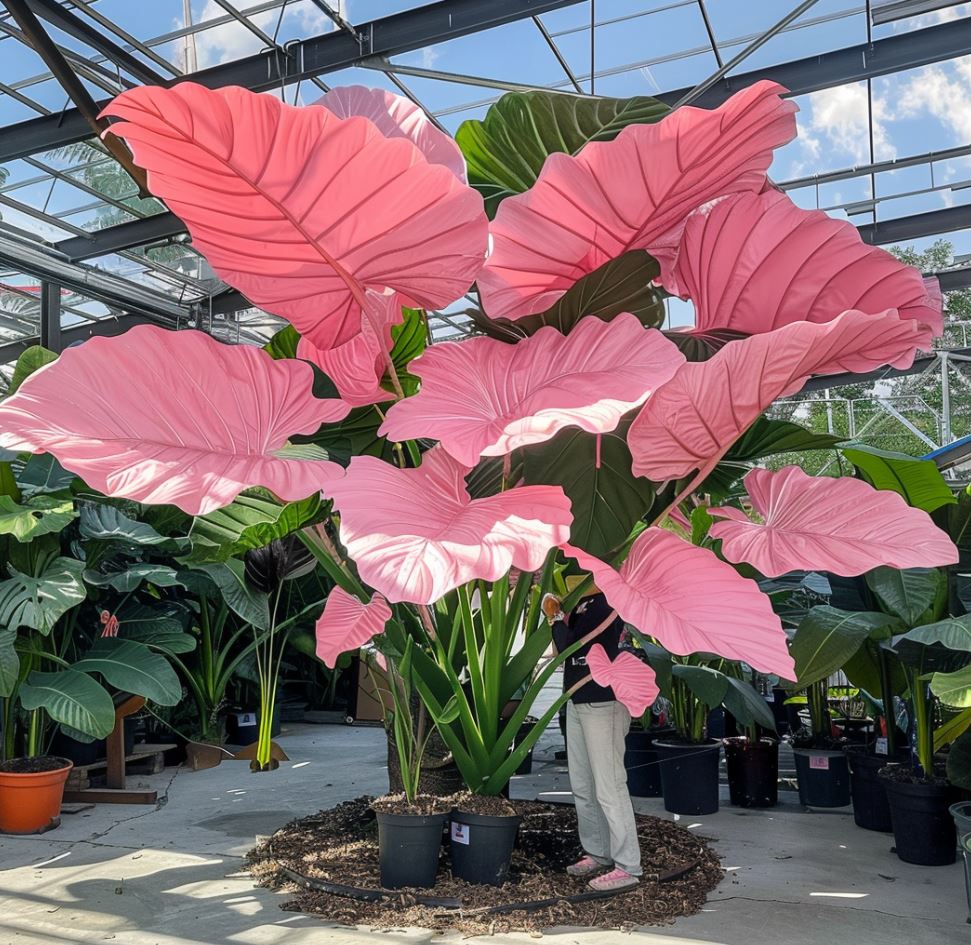
Conclusion
In exploring the multifaceted narrative surrounding Colocasia gigantea, we unveil a captivating story that invites deeper contemplation. From its dramatic presence in gardens to its cultural significance and ecological implications, this spectacular elephant ear plant presents a unique opportunity to reflect on our intrinsic connection to nature and our role as stewards within it.
As we continue to marvel at the breathtaking grandeur of Colocasia gigantea, let us also consider the broader implications of our fascination with nature’s wonders. By striking a balance between our desire to cultivate and appreciate these botanical masterpieces and our responsibility to protect the delicate balance of ecosystems, we can forge a path towards a more harmonious and sustainable future, where the majesty of the Colocasia gigantea can thrive alongside the preservation of our natural world.




